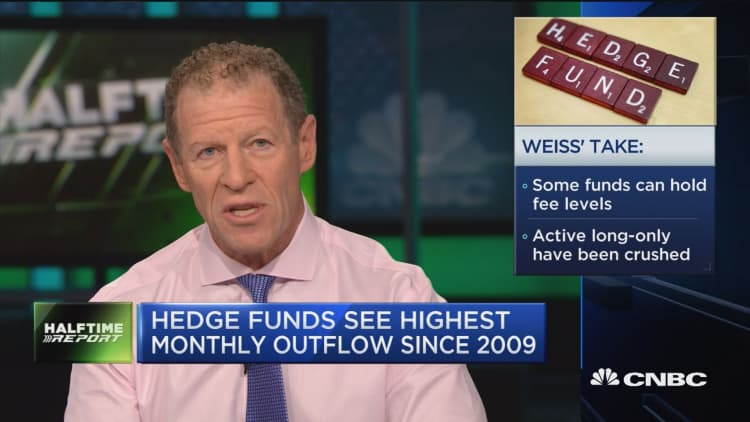The hedge fund industry is finding itself in hot water with investors… again.
Hedge funds recorded their highest monthly outflows since February 2009 in July – continuing a downward trend that began in January. For the first seven months of 2016, hedge funds suffered withdrawals of nearly $60 billion, according to analytics firm eVestment.
These increasing withdrawals from the industry come on the heels of several funds, including Tudor Investments and Aurelius Capital Management, cutting back on management fees.

Many hedge funds operate under a standard "2% and 20%" fee structure – where funds charge a 2% fee upfront on any initial capital, with an additional 20% placed on any investment-related gains.
According to hedge fund researcher HFR, the average fund is up just 3% through July - compared to 6% for the S&P. As a result of the poor performance some firms have come under pressure for their high costs.
The end of 2% and 20%?
Citigroup analyst William Katz weighed in – cutting shares of asset manager Och-Ziff Capital to a "Sell" today – saying "the 2% and 20% model is dead for players" in the industry.
Katz went on to suggest that an industry-sweeping reduction in fees could be on the horizon.
"We expect other investors to move toward the 1% and 10% model … given likely lower nominal returns looking ahead, rising focus on expense ratios … and competition" Katz said.
Halftime's Steve Weiss agreed that the industry is facing pressure over fee structure but believes it extends to the entire field of active asset management.
"The fee pressure that we see in hedge funds really pales in comparison with what you see with institutional money managers," Weiss said. "They went from 1% [management fees] over the last numbers of years to 35 basis points because they compete with passive investors."


